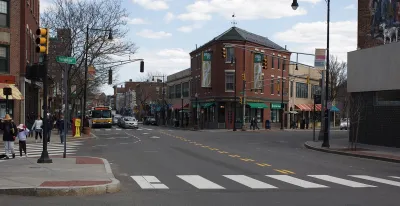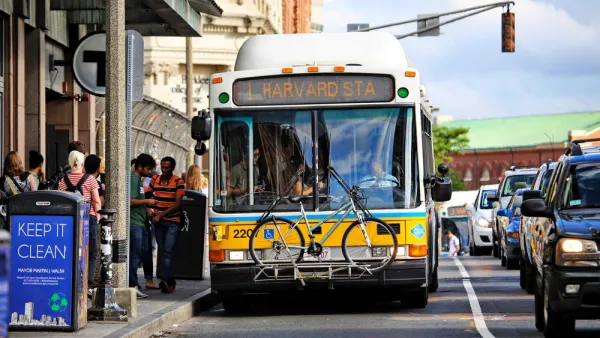The city’s original plan to decrease car ownership isn’t quite panning out, even with more alternative transportation options for residents.

Cambridge, Massachusetts, set a goal in 2014 to lower the level of car ownership by residents. The target was a decrease of 15 percent from the 1990 level, to about 0.8 cars per household, by 2020. Adam Vaccaro reports that ownership has decreased, but by less than half of the original target.
While the ownership level is down, the number of cars owned by residents has increased by 6.5 percent since 2014 and the population has also grown. "Even though much of the construction in Cambridge and other cities is concentrated near train and bus lines, the figures highlight that more people almost always means more cars," says Vaccaro.
To decrease car ownership, the city focused on improving biking and transit infrastructure. Some city officials would also like to follow the lead of Minneapolis and San Francisco with a ban on minimum parking requirements for new developments.
The decrease in Cambridge is still a contrast to neighboring Boston where household car ownership has increased by 7 percent since 1990. But Boston officials argue that the focus should be on miles driven rather than ownership rates.
Based on that measure, the situation in Cambridge looks even better. "Cambridge already boasts the lowest average number of miles driven per household in Massachusetts: fewer than 19 miles a day in 2014, according to data from the regional council," notes Vaccaro.
FULL STORY: Cambridge wanted a big drop in car ownership by 2020. That hasn’t exactly happened

Analysis: Cybertruck Fatality Rate Far Exceeds That of Ford Pinto
The Tesla Cybertruck was recalled seven times last year.

National Parks Layoffs Will Cause Communities to Lose Billions
Thousands of essential park workers were laid off this week, just before the busy spring break season.

Retro-silient?: America’s First “Eco-burb,” The Woodlands Turns 50
A master-planned community north of Houston offers lessons on green infrastructure and resilient design, but falls short of its founder’s lofty affordability and walkability goals.

Test News Post 1
This is a summary

Analysis: Cybertruck Fatality Rate Far Exceeds That of Ford Pinto
The Tesla Cybertruck was recalled seven times last year.

Test News Headline 46
Test for the image on the front page.
Urban Design for Planners 1: Software Tools
This six-course series explores essential urban design concepts using open source software and equips planners with the tools they need to participate fully in the urban design process.
Planning for Universal Design
Learn the tools for implementing Universal Design in planning regulations.
EMC Planning Group, Inc.
Planetizen
Planetizen
Mpact (formerly Rail~Volution)
Great Falls Development Authority, Inc.
HUDs Office of Policy Development and Research
NYU Wagner Graduate School of Public Service




























